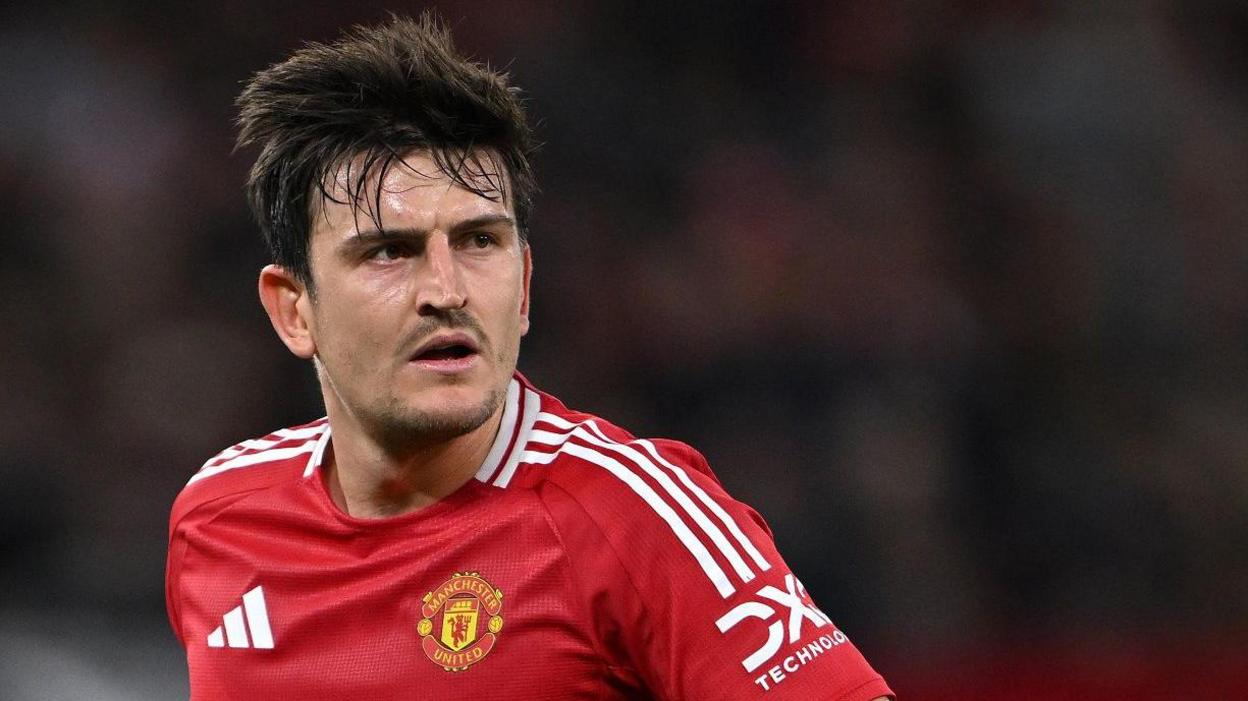Manchester United defender Harry Maguire has delivered a candid assessment of his team’s stuttering start under new manager Ruben Amorim, suggesting his teammates’ determination to implement new tactical instructions led to overthinking in their 1-1 draw with Ipswich Town.
The match, which marked Amorim’s debut in the United dugout, began promisingly with Marcus Rashford finding the net in the second minute. However, what followed was a performance that required several crucial interventions from goalkeeper Andre Onana to secure even a single point at Portman Road.
Speaking to Sky Sports, Maguire, who watched the match from the sidelines due to injury, offered insight into the team’s psychological struggle to adapt to Amorim’s philosophy. When you come from one style to another style, like the manager said in his interview after, I think people on the pitch are thinking too much where they want to be,” the England international explained, highlighting the mental challenges of tactical transition.
Maguire’s observations aligned closely with Amorim’s post-match comments, where the Portuguese coach acknowledged that his players appeared “afraid” and “confused” during the encounter. This mutual recognition of the team’s mental state suggests a clear understanding between the new manager and his squad about the hurdles they face in implementing his preferred 3-4-3 formation.
The defender’s analysis went beyond mere criticism, offering a balanced perspective on the situation. While acknowledging the importance of adhering to Amorim’s principles, Maguire emphasized the need for players to maintain their footballing instincts. At the end of the day, it’s a football match. Go and be better than your opponent and go and win the football match. Within that, play with his principles,” he stated, advocating for a more natural integration of the new tactical approach.
The match itself served as a stark reminder of the challenges facing United as they attempt to navigate this transitional period. Despite the early advantage provided by Rashford’s goal, the team’s inability to build on their lead and their subsequent reliance on Onana’s heroics highlighted the disconnect between tactical intention and execution.
Maguire’s perspective carries particular weight given his experience with tactical transitions at both club and international level. His observation that the team needs to “let it adapt with fluency, rather than forcing it” speaks to the delicate balance required when implementing significant tactical changes at a club of United’s stature.
The timing of this transitional period adds another layer of complexity to United’s situation. With crucial fixtures approaching, including Thursday’s Europa League clash against Bodo/Glimt, Amorim faces the challenge of implementing his vision while maintaining competitive performance levels. The Portuguese manager has already identified three specific areas requiring improvement, demonstrating his clear understanding of the task at hand.
Looking ahead, the international break has provided valuable time for tactical integration, but as Maguire suggests, the real progress will come through practical application on the pitch. The challenge for United’s players will be finding the right balance between conscious tactical implementation and natural footballing instincts.
This period of adaptation under Amorim represents more than just a change in formation; it signifies a broader shift in United’s playing philosophy. The coming weeks will be crucial in determining how quickly the squad can overcome their initial hesitation and begin expressing themselves more naturally within the new system.
As United prepare for their upcoming European fixture, the focus will be on showing signs of progress while maintaining competitive edge. With both manager and players openly acknowledging the current challenges, there’s a sense of realistic expectation about the time required for this tactical evolution to take root at Old Trafford.



